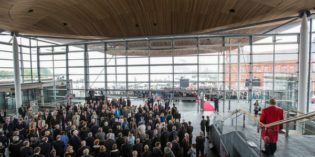Tag: Siim Trumm

Campaign spending and voter turnout: does a candidate’s local prominence influence the effect of their spending?
At election time, political candidates in Britain routinely spend significant sums of money on their local campaigns. Generally speaking, the more individual candidates spend, the higher turnout in that constituency. But while some candidates are major contenders in their area, many candidates who are unlikely to win also spend substantial sums on their campaigns. By analysing candidate spending data from the 2010 general election, Siim Trumm, Laura Sudulich and Joshua Townsley find that the money spent by viable contenders has a greater impact on voter turnout than spending by candidates who are unlikely to win.

Different visions of representation among voters and candidates in Wales
Whose opinions should Assembly Members prioritise when carrying out their duties in the Welsh Assembly? Here, Siim Trumm (University of Nottingham) compares the views of voters and candidates on how AMs should vote when confronted with competing pressures. He finds that candidates are more likely to think that it is acceptable for AMs to discard the views of their voters in favour of their own views or those of their party than voters.

Dual candidates running for the Welsh Assembly campaigned harder
There has been some controversy (and indecision) in Wales about whether National Assembly candidates should be allowed to stand for both a constituency and the regional list. Peter Hain argued it showed ‘utter contempt’ for voters, because someone who was rejected as an individual could nonetheless be elected. In the first two Assembly elections it […]

When parties engage voters on the ground, they intensify public interest in elections and improve turnout
Local campaigns play a key role in Britain in mobilising the electorate. Here, Siim Trumm and Laura Sudulich compare the effects of different campaign activities on voter turnout at general and devolved elections. They find positive mobilisation effects for money spent on the distribution of unsolicited material and paid staffers. Similar PostsCampaign spending and voter turnout: […]

Parliamentary salaries are frequently a source of party funding, but what are the implications for democracy?
In nearly all modern democracies, parliamentarians by now receive a full-time salary in order to attract qualified candidates and representatives from all corners of the society. These payments are, in principle, not intended to constitute an additional source of party income. Yet, Nicole Bolleyer and Siim Trumm have shown that in many democracies they are […]


 Democratic Audit's core funding is provided by the Joseph Rowntree Charitable Trust. Additional funding is provided by the London School of Economics.
Democratic Audit's core funding is provided by the Joseph Rowntree Charitable Trust. Additional funding is provided by the London School of Economics.